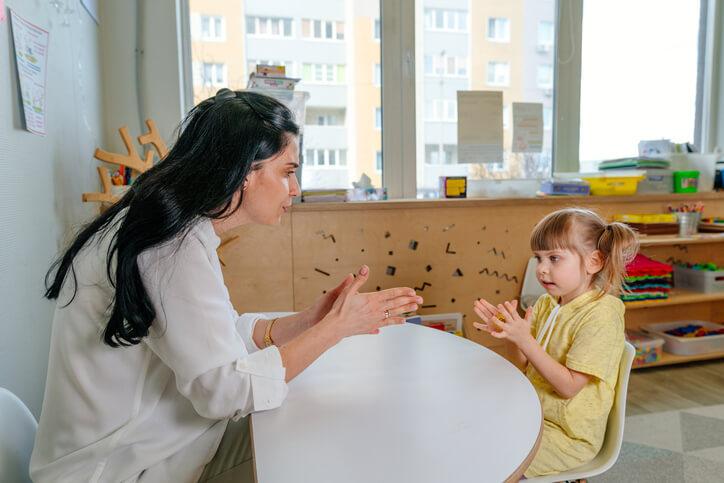Are you considering a career as an educational assistant? Prepare for the privilege of working with many unique young individuals and positively impacting their education and lives. Educational assistants complete various tasks, including assisting students with their assignments under teacher supervision, monitoring students during recess, and working with special needs students one-on-one.
One learning challenge that some of your students will be dealing with is speech delays. Speech delays differ from language delays. They occur when a student struggles with the physical act of speaking instead of working with language – the entire system of words and gestures we use to communicate.
Each student with a speech delay will face different challenges at school, so many will need one-on-one assistance from an educational assistant. Keep reading for some pointers for effectively supporting students with speech delays.
Train online or on-campus for a job that pays more and means more.
Considering a career change?
Understand the Nature of Each Student’s Speech Delay
Not all speech delays are equal. There are various causes, including hearing problems, chromosomal and genetic disorders, motor disorders like cerebral palsy, autism spectrum disorder, and mental health conditions. To effectively support students with speech delays, try to understand the cause of each student’s speech delay.
If a cause has not yet been identified, familiarize yourself with the child’s unique academic challenges, strengths, and needs. This will give you and the educator a good idea of what teaching methods, behavioural modification strategies, and activities might be most effective when you become an educational assistant.
Use Tactile Cues to Encourage Pronunciation as an Educational Assistant
Tactile cueing is an aspect of articulation therapy. Articulation therapy can be beneficial for students with motor speech disorders. Though speech therapy interventions should be done under the supervision of a professional, you can undoubtedly incorporate some strategies on your own.
For example, when speaking to a child who struggles with speech, make it a duty to exaggerate your articulation and draw attention to your embouchure (the position of your tongue, teeth, and lips) as you form different sounds and words.
This may help students make connections and start imitating your pronunciation. After educational assistant training, don’t hesitate to connect with any speech therapists or pathologists on staff within your institution to learn pointers for promoting correct pronunciation.

Try tactile cueing to help students with speech delays after educational assistant training
Use Music to Encourage Verbalizations
From the beginning of life, the human brain is stimulated by music. Music and linguistics share the same neurological pathway, so when the brain processes music, synaptic growth occurs in the same area of the brain where speech is developed.
To activate the power of music and improve speech, encourage group singing sessions when the class schedule allows. Singing with students after earning your educational assistant diploma facilitates vocalization and enhances children’s understanding of syntax, an excellent speech exercise they can enjoy.
Music is an enjoyable, multi-sensory activity that can make learning fun for all students in the classroom. Simple poems can have a similar effect on students with speech delays.





